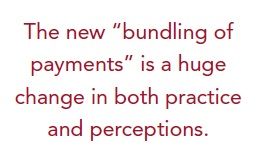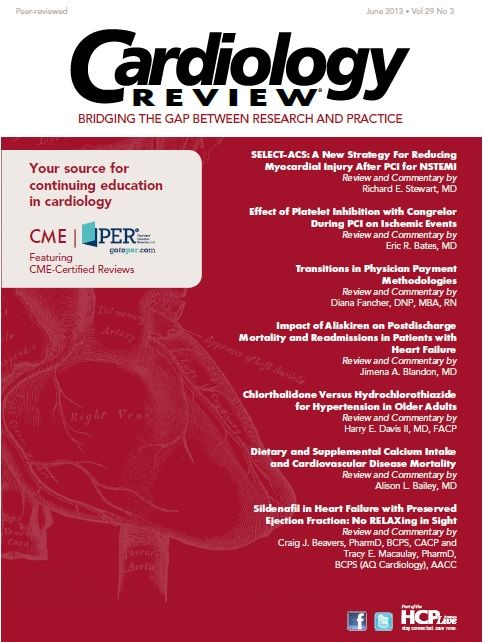Obamacare: Creating New Challenges and Chasms

Mike Hennessy
Letter From the Publisher
Cardiology Review is committed to bringing forward extremely timely clinical issues and providing summaries and insightful commentaries by our prestigious Editorial Advisory Board members — and we are also keen to tackle the most important issues of the day that affect the profession overall. The most profound of these is the Affordable Care Act (ACA) and the dramatic impact it has on physician practices nationwide.
In the review of the recent white paper, “Phasing Out Fee-For-Service Payment,” published in the New England Journal of Medicine, Diana Fancher, DNP, MBA, RN, tackles what is perhaps one of the most critical issues facing health care in what she calls “the looming requirements of the 2010 Patient Protection and Affordable Care Act.” The National Commission on Physician Payment Reform, convened by the Society of Internal Medicine, released 12 recommendations for “aggressive approaches” to changing the current methods of physician payments.
The goal, according to the commission, is to largely eliminate stand-alone fee-for service payments to medical practices because of inefficiencies, duplication of service, and discouragement of coordination of care. The new emphasis is on quality, value, and outcomes-based performance reimbursement. Transparency and equal reimbursement for physician services, regardless of the specialty or setting, will stem the rising cost of health care, according to the paper.
All of this sounds pretty good if you don’t question the ACA at all and the way in which this legislation will dramatically change the way all health professionals operate in the not so distant future. In this issue of Cardiology Review, cardiologists and others will read what Fancher has to say. She is a member of her hospital’s senior executive team, which deals with the practical aspects of planning, policy, strategic decisions, and implementation. In other words, her Commentary on this new white paper is based on practical in-the-trenches experience.

In her opinion, the “forced collaboration may be one of the more contentious stipulations in the ACA”—just because Obamacare says this will work does not mean it will. The new “bundling of payments” is a huge change in both practice and perceptions and, according to Fancher, the integration of the various entities involved will require “a level of communication and teamwork that will be extremely difficult to achieve.” One has to wonder if the architects of Obamacare actually involved the practitioners, including cardiologists, as they built the new health care reform plan.
Physicians have also questioned the makeup of the commission and the formation of this group “out of thin air.” As Fancher concludes, while the intent to improve quality, coordinate care, and decrease costs is noble, it “will serve to create new chasms of difficulty during this realignment.” It looks like ACA is going to encounter some more bumps on the road to implementation.
Thank you for reading!
Mike Hennessy
President, Chairman, Chief Executive Officer
